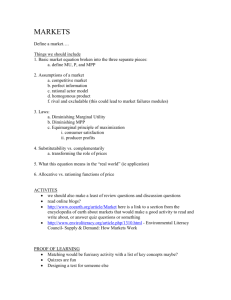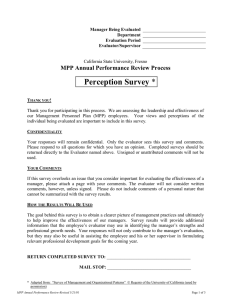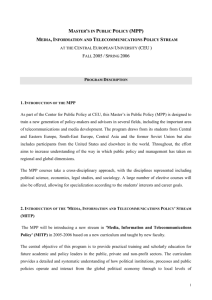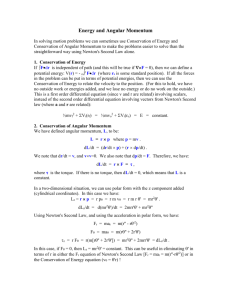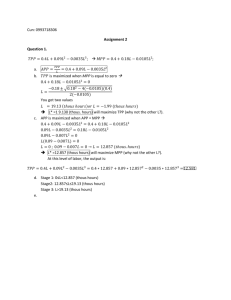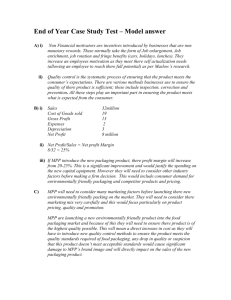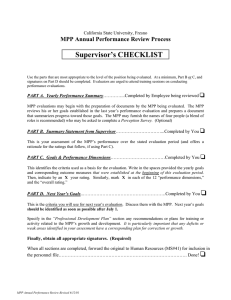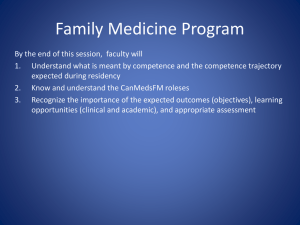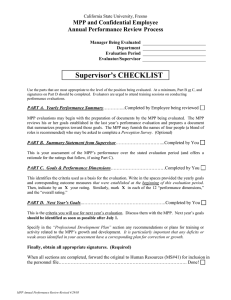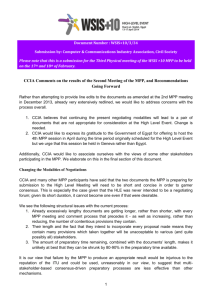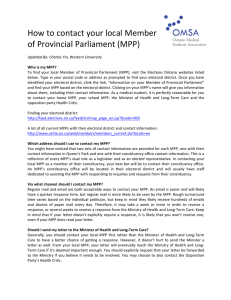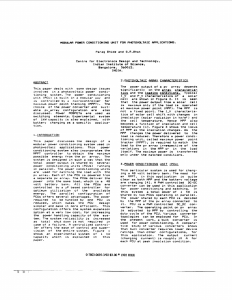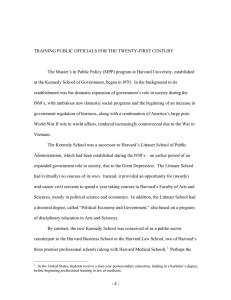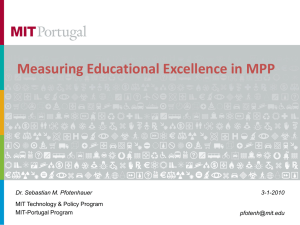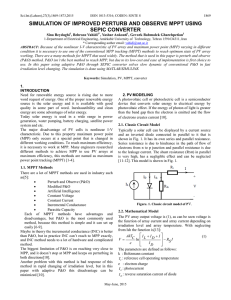Robert Stibolt, Spring 2012
advertisement
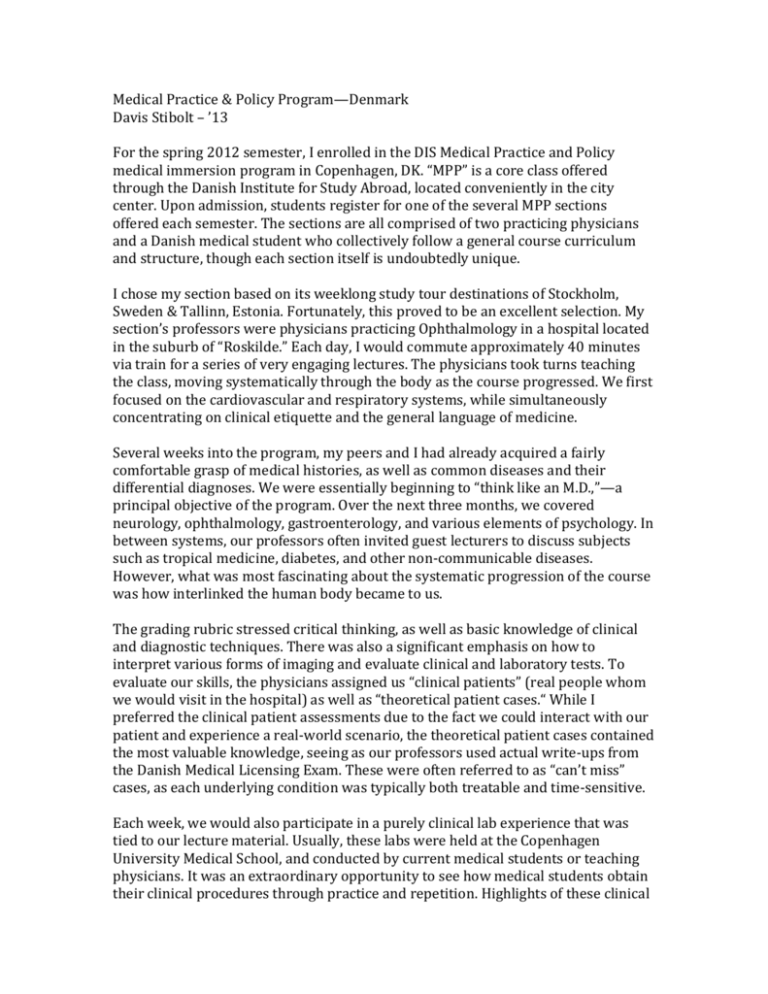
Medical Practice & Policy Program—Denmark Davis Stibolt – ’13 For the spring 2012 semester, I enrolled in the DIS Medical Practice and Policy medical immersion program in Copenhagen, DK. “MPP” is a core class offered through the Danish Institute for Study Abroad, located conveniently in the city center. Upon admission, students register for one of the several MPP sections offered each semester. The sections are all comprised of two practicing physicians and a Danish medical student who collectively follow a general course curriculum and structure, though each section itself is undoubtedly unique. I chose my section based on its weeklong study tour destinations of Stockholm, Sweden & Tallinn, Estonia. Fortunately, this proved to be an excellent selection. My section’s professors were physicians practicing Ophthalmology in a hospital located in the suburb of “Roskilde.” Each day, I would commute approximately 40 minutes via train for a series of very engaging lectures. The physicians took turns teaching the class, moving systematically through the body as the course progressed. We first focused on the cardiovascular and respiratory systems, while simultaneously concentrating on clinical etiquette and the general language of medicine. Several weeks into the program, my peers and I had already acquired a fairly comfortable grasp of medical histories, as well as common diseases and their differential diagnoses. We were essentially beginning to “think like an M.D.,”—a principal objective of the program. Over the next three months, we covered neurology, ophthalmology, gastroenterology, and various elements of psychology. In between systems, our professors often invited guest lecturers to discuss subjects such as tropical medicine, diabetes, and other non-communicable diseases. However, what was most fascinating about the systematic progression of the course was how interlinked the human body became to us. The grading rubric stressed critical thinking, as well as basic knowledge of clinical and diagnostic techniques. There was also a significant emphasis on how to interpret various forms of imaging and evaluate clinical and laboratory tests. To evaluate our skills, the physicians assigned us “clinical patients” (real people whom we would visit in the hospital) as well as “theoretical patient cases.“ While I preferred the clinical patient assessments due to the fact we could interact with our patient and experience a real-world scenario, the theoretical patient cases contained the most valuable knowledge, seeing as our professors used actual write-ups from the Danish Medical Licensing Exam. These were often referred to as “can’t miss” cases, as each underlying condition was typically both treatable and time-sensitive. Each week, we would also participate in a purely clinical lab experience that was tied to our lecture material. Usually, these labs were held at the Copenhagen University Medical School, and conducted by current medical students or teaching physicians. It was an extraordinary opportunity to see how medical students obtain their clinical procedures through practice and repetition. Highlights of these clinical labs included learning to administer I.V.’s, close wounds, preserve sterilization, and assess various neurological mechanisms. After we honed our skills, we were able to implement the techniques on synthetic patients, and eventually on living “patients.” The MPP program also involves a larger-scale study of healthcare and socialized medicine. During a weeklong trip to Sweden and Estonia, we were instructed to compare and contrast welfare states’ healthcare systems to the American model. Given the recent U.S. changes under the Affordable Care Act, it was interesting to see how the process works in Europe: where systems are generally experiencing rampant privatization, The trips were also an extraordinary opportunity to meet world renowned researchers and physicians. During a three-day excursion to Aalborg, Denmark, I realized how interested I was in biomedical implantation, and the integration of medicine with physics & engineering. I would highly recommend that Wofford students with medical aspirations consider enrolling in the MPP program. Initially, I planned on pursuing a career in medicine solely to become an orthopedic surgeon. However, after completing the MPP program, I have developed a new appreciation for many branches of medicine, specifically neurology, ophthalmology, and gastroenterology. I feel that the MPP provided me with a set of invaluable skills that will greatly aid my future medical school endeavors. DIS offers many supplemental classes that fulfill Wofford’s general education requirements, and various pre-med oriented studies. For example, I paired my MPP class with a study of Medical Ethics, which was by far one of the most challenging and gratifying courses I have taken thus far in college. Copenhagen is an excellent destination for a semester abroad, and the experience is something that I still reminisce about on a seemingly daily basis. For questions: stiboltrd@email.wofford.edu
